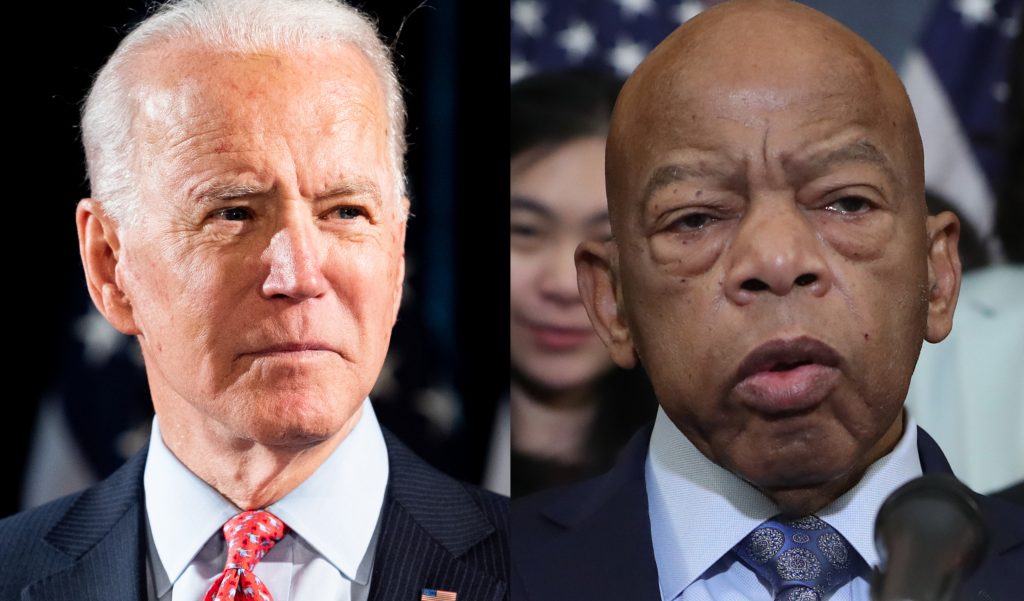[ad_1]
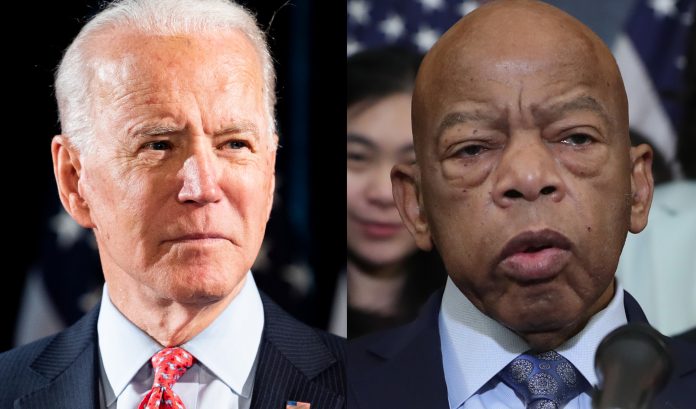
Georgia Congressman John Lewis recently endorsed the Democratic Party presidential hopeful and Former Vice President Joe Biden. I was on the 18-minute reporters call early Tuesday evening when the congressman emphatically endorsed Biden as “a friend, a dear friend.”
The Democratic congressman then went on to praise Biden’s courage, conscience, and faith, asserting that the former VP would be a great president and lead our country to a “better place.”
READ MORE: Civil rights icon Rep. John Lewis endorses Joe Biden for president
Lewis, 80, was first elected to the House of Representatives in 1986 and is currently serving his 17th term in congress. The civil rights icon has also served in leadership roles in the Georgia delegation and as the House of Representatives chief deputy whip since 1991 and senior chief deputy whip since 2003.
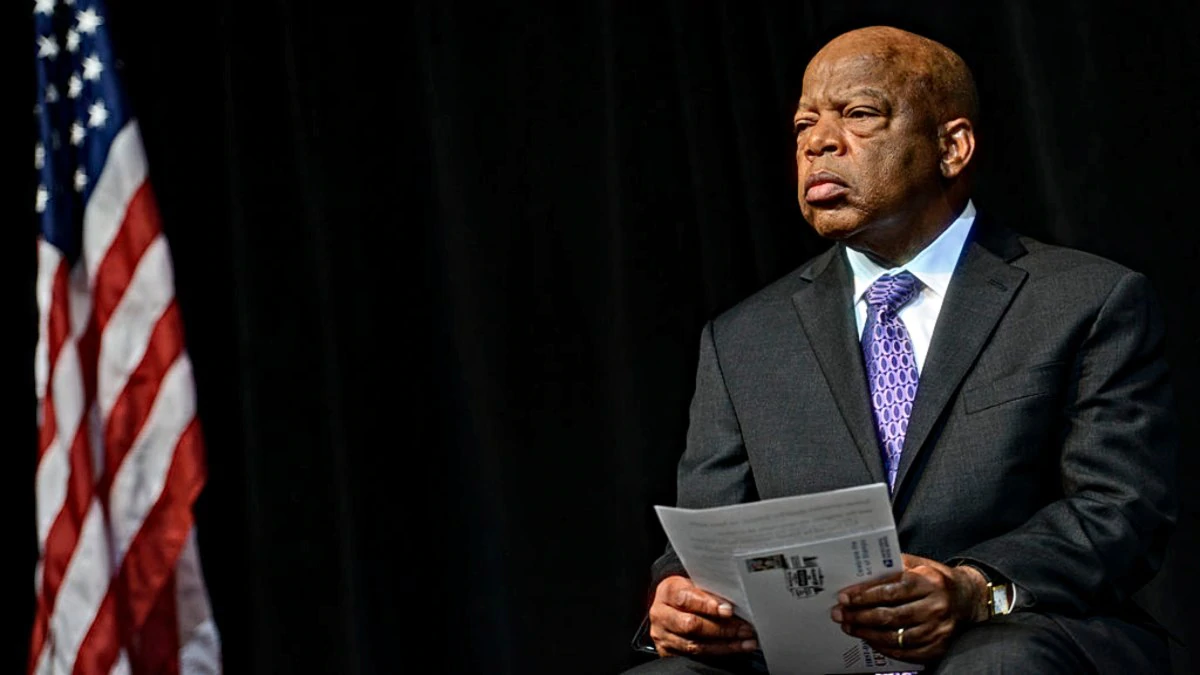
No one can deny Lewis’ dedication to civil rights and his place in American history. Lewis, served as chairman of the Student Nonviolent Coordinating Committee (SNCC) and assisted in organizing the 1963 March on Washington. Lewis consistently played key roles in the Civil Rights Movement, most notably the march in Selma and the subsequent actions that led to the end of legalized racial segregation in the United States.
It is no surprise Biden sought Lewis’ endorsement for his quest for the presidency. After South Carolina Rep. James Clyburn helped deliver a historic primary win for Biden on Super Tuesday, Biden’s courting of senior Black elected officials has been a key strategy on his road to the White House.
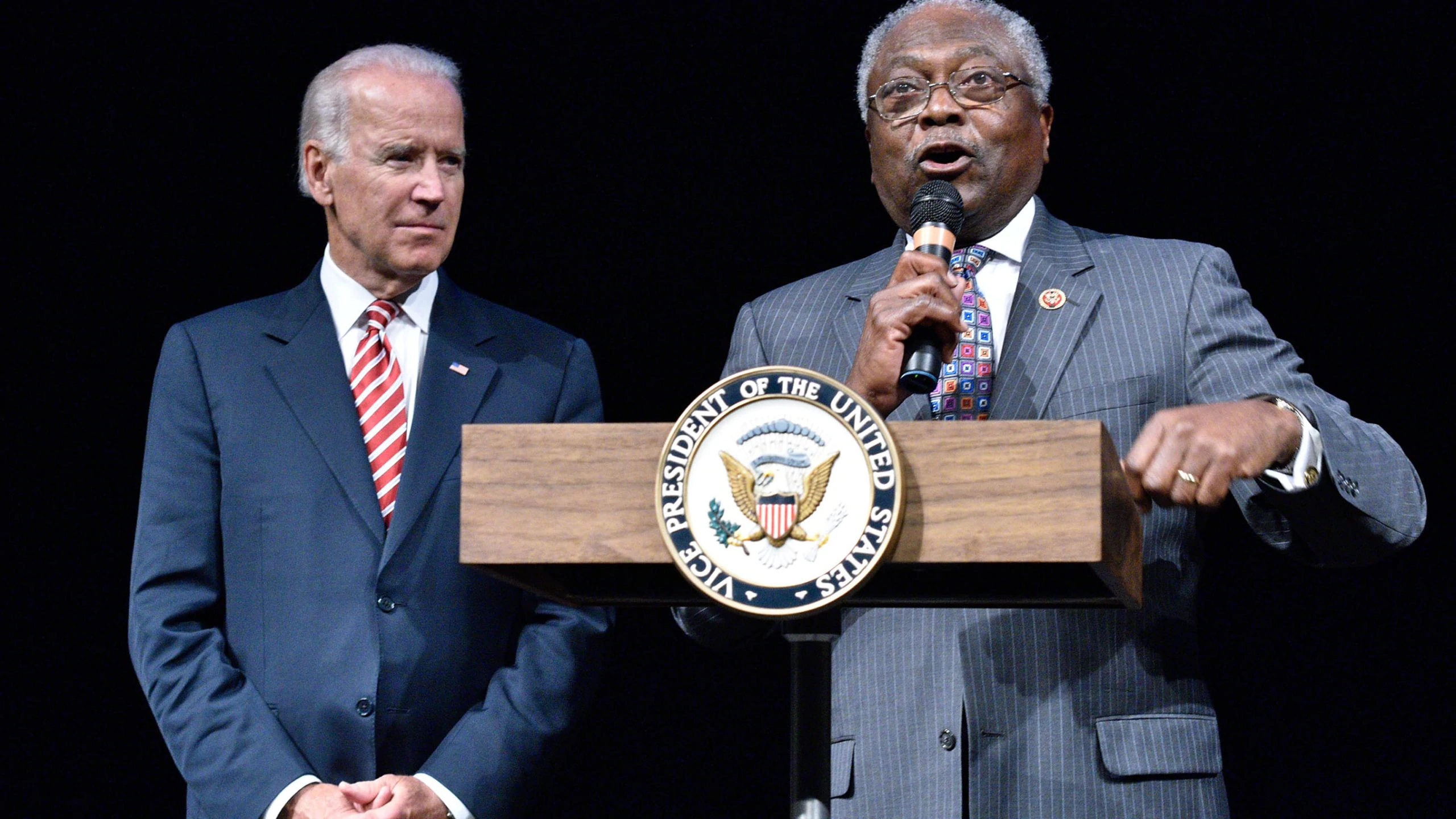
READ MORE: What Joe Biden understood about Black voters that Bernie Sanders didn’t
Black voters are indeed the backbone of the Democratic Party and I am not begrudging Biden’s strategy. Unlike the now-former presidential candidate, Bernie Sanders, who chose to largely circumvent Black voters as an electoral strategy, Biden actually does see the value of speaking directly to Black voters and Black elected officials.
However, Biden’s Achille’s heel seems to be his lack of understanding of the necessity in aggressively courting younger Black voters as well.
What has made the Biden blind spot so palpable was Lewis’ answer when asked specifically about including younger Black voters into the Biden electoral strategy. Lewis recalled the many efforts and sacrifices made by leaders in the civil rights struggles, as well as the blood he shed on the Edmond Pettus Bridge.
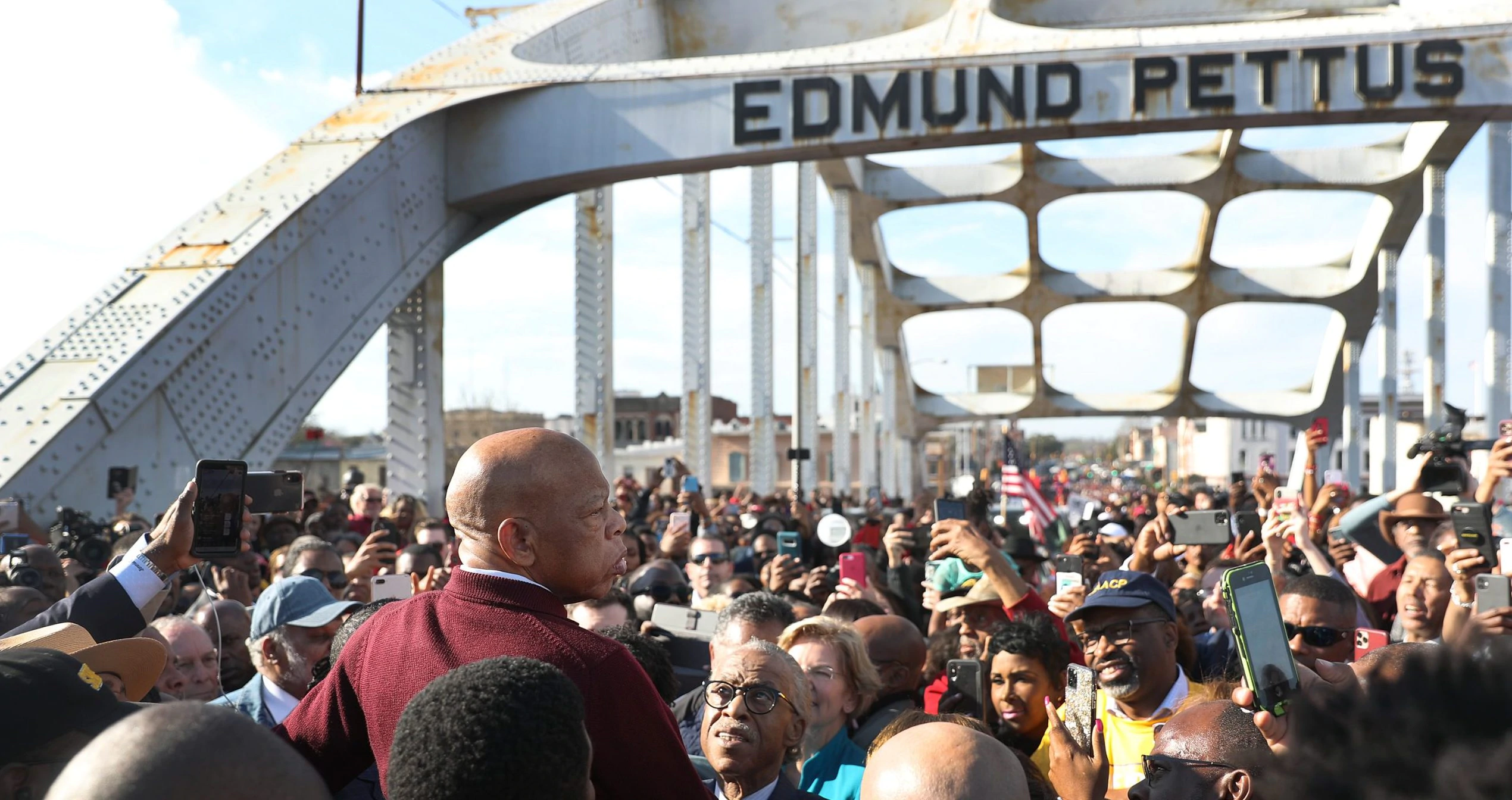
He told reporters that “I would tell young people the story of Selma and Montgomery and Mississippi…If we fail to vote, we don’t count. The vote is the most powerful nonviolent tool we have in a democratic society. And we must use it.”
The efforts and sacrifices of Lewis should not be forgotten, but electoral data clearly illustrates the simple fact that younger Black voters are not necessarily motivated by past acts of elected and civil rights leaders.
READ MORE: Who should Joe Biden pick as his VP running mate? (Hint, it should be a Black woman)
Electoral data on local, state, and national levels shows that although younger Black voters are politically astute and have clearly defined opinions on a myriad of policy issues, by and large, Biden does not speak directly to their policy interests nor do they specifically address younger Black votes as a significant voting block.
It is apparent that older Black votes are dedicated loyalists to the Democratic Party, largely because the Republican party has chosen to cast much or most of its lot behind a white nationalist agenda. Black voters are in many ways captive to the Democratic Party, which makes their evaluation of candidates an intricately strategic endeavor.
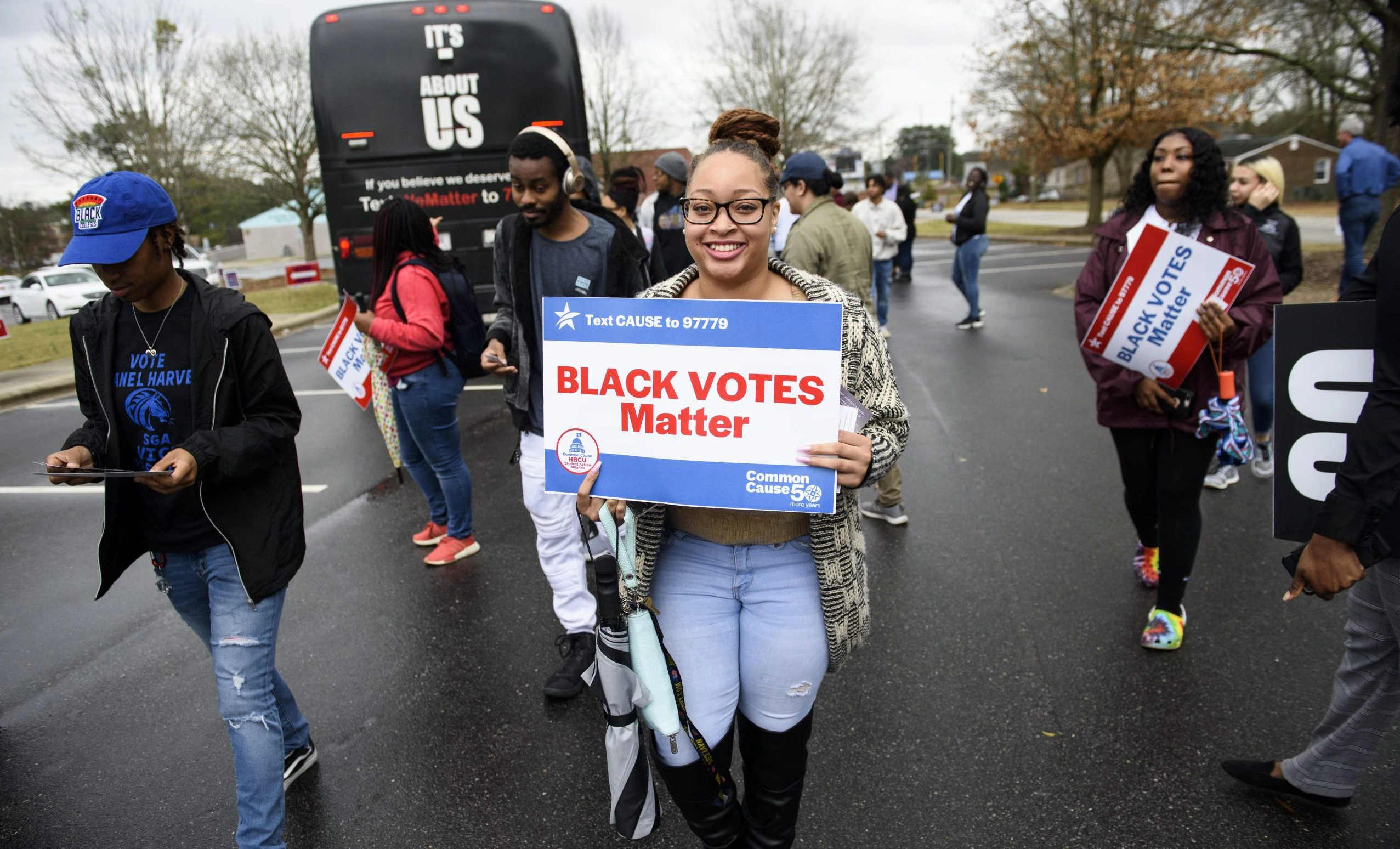
Younger Black voters, however, do not appear to view themselves as captives. Many do not feel obligated to vote for “the lesser of two evils” and have stayed at home when presented with less than ideal options. Electoral results have shown a distinct autonomy when assessing the participation of young Black voters.
To merely think young Black voters will turn out to vote for Biden because John Lewis urges them to remember civil rights struggles instead of present-day, concrete policy prescriptions of the Democratic nominee is a faulty premise. Unfortunately, it is a premise for far too many candidates running for local and state offices across the nation.
READ MORE: Jim Clyburn called Joe Biden an ‘honorary Black man’ according to Cory Booker
Knowing that voter disenfranchisement will be rampant in a (hopefully) post-COVID-19 November election season, if Biden wants to maximize younger Black electoral participation he will need to understand the value of Congressman Lewis’ contributions and translate those struggles into specific policies that speak directly to younger Black voters.
Knowing that Biden is a friend, even a dear friend will not be enough. If Biden hopes to move to 1600 Pennsylvania Avenue, his bags will be packed by the efforts of young Black voters. If a more specific policy agenda is not presented to young Black voters … and soon, Biden will only be moving to the annals of history as the loyal vice president to the first Black president in U.S. history.
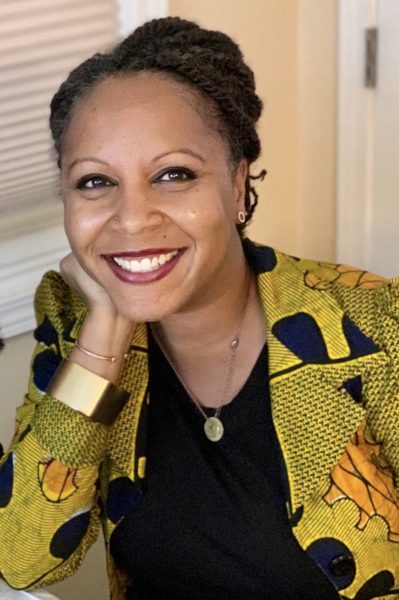 Christina Greer is the politics editor at The Grio, an associate professor of political science at Fordham University, and the author of “Black Ethnics: Race, immigration, and the pursuit of the American Dream”.
Christina Greer is the politics editor at The Grio, an associate professor of political science at Fordham University, and the author of “Black Ethnics: Race, immigration, and the pursuit of the American Dream”.
[ad_2]
Source link

